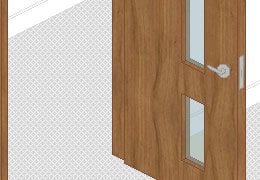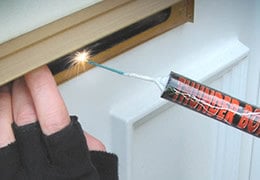-
Contact
Sales & Customer Service
0800 612 6537 support@safelincs.co.uk Live ChatDelivery Enquiries
0800 077 6149 - Resources
Fire & Safety Solutions
CALL OUR TEAM NOW 0800 612 6537
Also FREE from UK mobiles
Free Delivery
on 100s of Products
Live Chat - Online
Instant help & Advice
Trade Discounts
and exclusive pricing
0% Credit Available
Open an account now
5 Star Customer Feedback
Penetration Protection

Intumescent products to maintain fire integrity when penetrating walls including pipe wraps, putty, batt, pipe collars and sleeves.
View ProductsFire Door Protection

Our range of fire door products are suitable for installing on fire doors without compromising their fire integrity which is paramount.
View ProductsElectrical Protection

Astroflame intumescent socket box covers & socket box inserts expand when exposed to heat, stopping the spread of smoke & fire.
From £2.87 inc VATIntumescent Letter Plates

Our range of intumescent letter plates are suitable for FD30 and FD60 fire doors, available in different sizes and finishes.
From £23.87 inc VATIntumescent Sealants

Intumescent sealants are used to fill voids or seal voids or penetrations whilst ensuring that fire integrity is maintained.
View ProductsAnti-Arson Mailboxes

Eliminate the threat of arson with out range of anti-arson letterboxes, fireproof mail bags and letterbox blocking products.
View ProductsIntumescent Grilles

Intumescent fire rated grilles suitable for doors without reducing fire protection. Available in a variety of sizes & colours.
View ProductsFire Retardant Sprays

Fire retardant sprays can be used on a range of materials giving them protection from open flames and catching fire.
View ProductsWelding Drapes

Ideal for use as a protective barrier in industrial areas where cutting and welding operations are being carried out.
From £73.91 inc VATHelp & Advice

A collection of helpful articles and guides designed to help you understand and chose the best products for your requirements.
View Help & AdviceProduct Videos

Videos which are designed to offer introductions, interactive solutions and overviews of our products.
View Product VideosWhat is Passive Fire Protection?
Passive fire protection (PFP) is a component or system of components that are installed within a premises to contain or slow the spread of fire and smoke throughout the building. The products remain dormant whilst under normal conditions and react to hot temperatures, such as those generated by a fire, which causes the material within PFP products to expand. The expansion of this material allows PFP products to fill holes and penetrations (created for running pipes or wiring) through floors and walls to ensure they remain compartmentalised.
Unlike active fire protection such as extinguishers or sprinklers, which may require activation from an external source or manual human intervention, passive fire protection products do not. The materials used in many PFP products are designed to be naturally fire resistant to increase the protection that the building has against fire, and also prolong the time that occupants have to escape. However, it must be noted that products that are made from an intumescent material, or contain intumescent material, have additional benefits. Intumescent fire products are designed to react when exposed to heat and can expand or change their physical properties to allow them to seal penetrations through walls and thus reinstating the fire barrier to prevent flames and smoke from passing through.
What does intumescent mean?
An intumescent is a material that expands in volume when exposed to heat, and is often used within buildings to provide passive fire protection. Intumescent materials are designed to swell up significantly at high temperatures, which causes them to seal penetrations through walls or floors, ensuring that the fire barrier is re-instated and prevents flames and smoke from affecting the rest of structure. A common example of this can be seen in door frames, with the use of fire and smoke seals. When these are exposed to heat, they expand to fill the gap around the door ensuring that it compartmentalises the room and provides an effective fire barrier so that safe evacuation of a building can be achieved.
How to choose between pipe collars and pipe wraps
When a fire happens, it is key to know how your intumescent products will expand in these conditions, in order for your product to work correctly. Depending on the type of construction the wall or floor is made from will help you decide whether it is better suited for a pipe collar or pipe wrap.
Because pipe collars have a steel outer shell, when it reacts with heat and expands, the intumescent material can only expand in one direction towards the pipe, ensuring that enough pressure is maintained to crush the pipe and seal the hole from flames and smoke. This makes pipe collars particularly useful when installed in plasterboard walls, floors, and ceilings.
Pipe wraps lack this outer shell, so they are required to be installed in solid walls / floors, as to stop the product from expanding outwards but forcing them inwards towards the pipe to seal the hole. Intumescent wraps may also be considered when there is a lack of space to install a pipe collar, where pipes may have been installed tight up against the wall.



















